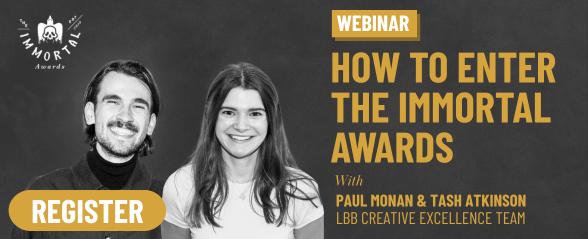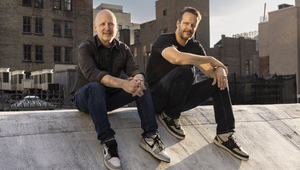
‘But Seriously Though’ – Why We Need to Make People Laugh

It's time we stop taking ourselves so seriously and embrace humour a little more to drive serious business results, according to Andrew Robertson, president and CEO of BBDO Worldwide. During a presentation in the Palais at Cannes Lions today, Andrew presented data - backed up with a healthy dose of wit - that showed it’s one of the most effective tools in a brand and agency’s marketing arsenal. But the use of humour in advertising is in decline, and Andrew urged the crowd to at least consider having a laugh again.
LBB’s Addison Capper caught up with Andrew to delve a little deeper.
LBB> When did respect for comedic advertising begin to dwindle in your eyes?
Andrew> It’s not so much about when it began to dwindle in my eyes. There is powerful data from Kantar to show that ‘funny’ advertising has been in a steady decline since 2002. So has ‘light hearted’ advertising with noticeable accelerations in both the financial crisis of 2008/9 and the pandemic.
LBB> Why do you think it happened? So many of the world's most iconic ads are ones that make people laugh!
Andrew> Iconic is good. Effective is better. Both is best of all. Again there is a lot of compelling data to show how effective it can be to make people laugh or smile with your advertising. So why would it be in decline? I think the accelerations around the financial crisis and pandemic suggest that judgements were being made about the appropriate ‘tone’ for the moment. Interestingly the data also shows that humour worked just as well in these moments as at other points, so the judgement, whilst logical and well intentioned, wasn’t necessarily correct.
Beyond that, I don’t have data but my observation would be that as the importance of brand purpose has spread - something I completely endorse by the way - so too advertising for some brands, that might otherwise have embraced humour, have become more serious and earnest. Look at beer advertising for example. I think it’s important to recognise that, at least for some brands, you can have a serious purpose but talk about it in a humorous way.
LBB> What would you say to a client who is apprehensive about utilising comedy in advertising?
Andrew> First, I’d show them the data. Then I’d point out that emotion drives behaviour. And that data shows that the only emotion that works better than laughter is schadenfreude. (Kantar)
LBB> Is humour for everyone, or just for certain situations, categories, and channels?
Andrew> I’ve seen good data to show how well it can work for everything from a billboard to e-commerce copy, and for every category from beer to funeral directors.
LBB> Comedy is wonderful but can potentially upset certain people. With that in mind, what are some key things to keep in mind when creating comedic advertising?
Andrew> Comedy is really hard. If you want to find out how hard, just sit down and try and write something really funny. To create comedy that doesn’t cause offence you need to draw on universally observed patterns of behaviour. As Jerry Seinfeld says… establish the premise, then stay in the bit.
LBB> What is your all-time favourite funny commercial?
Andrew> I don’t have one. I love anything that makes me smile or laugh.
LBB> Anything else you’d like to say?
Andrew> But seriously folks… We need to use humour more to build our clients’ businesses. We’re missing a trick.















